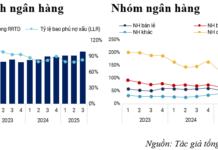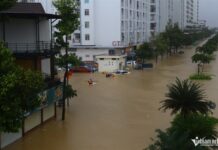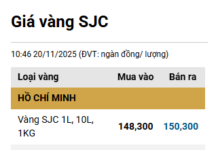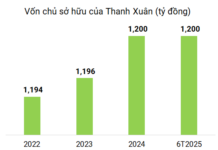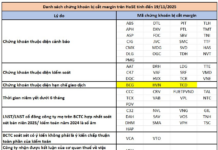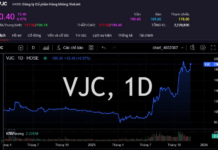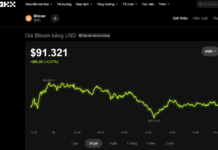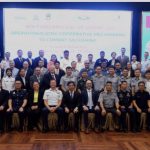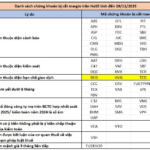According to the Fisheries Surveillance Department under the Ministry of Agriculture and Rural Development (MARD), in the first six months of the year, the situation of fishing vessels and fishermen being detained and handled by foreign countries remained complex, with increasingly sophisticated violation forms. The number of serious cases as stipulated remains unaddressed, lacking deterrence. Up to now, 4 out of 28 coastal provinces and cities have not yet fully established local fisheries surveillance forces…
During the inspections, the EC affirmed that a prerequisite for Vietnam to lift the yellow card on seafood is to put an end to fishing vessels violating foreign waters.
To prevent this situation, the Fisheries Surveillance Department announced that, from August 1st, they would strictly handle illegal, unreported, and unregulated (IUU) fishing activities.
Accordingly, Resolution 04 of the Supreme People’s Court guides the application of ten articles of the Penal Code, providing a legal basis for agencies to strictly handle cases of illegal exploitation in foreign waters.

From August 1st, fishermen who violate regulations on the management and use of vessel monitoring devices for illegal fishing will be criminally prosecuted.
Specifically, authorities will prosecute acts of exiting to fish illegally outside of Vietnam’s waters; organizing or brokering for others to exit or enter and fish illegally in foreign waters.
Other acts subject to prosecution include: violating regulations on protecting aquatic resources; exploiting, trading, and transporting endangered and rare aquatic species; smuggling and illegally transporting aquatic species; and using fraudulent means to trade aquatic species.
Notably, fishermen who violate regulations on the management and use of vessel monitoring devices for illegal fishing; forge or use fake documents or seals of agencies and organizations to exploit, trade, or transport aquatic species illegally will be subject to prosecution.
“The subjects of prosecution are masterminds, brokers, and organizers of illegal exit and entry for fishing, as well as repeat offenders. Those who are hired to work will not be prosecuted. Foreigners who commit acts of illegal fishing in Vietnamese waters will be held criminally liable,” said the Fisheries Surveillance Department.
The leader of the Fisheries Surveillance Department stated that, from now until September and October, we must use all solutions to prevent and minimize fishing vessels from violating foreign waters and resolutely handle violators… If there is progress, the EC will consider conducting the fifth inspection to lift the yellow card for Vietnam in October.
At the recent meeting of the National Steering Committee on IUU Fishing, Deputy Prime Minister Tran Luu Quang requested that functional forces increase the “level and frequency” of fleet management and monitoring and be more resolute in tracing the origin of seafood.
The Deputy Prime Minister requested that the MARD and localities organize delegations to inspect and monitor at the grassroots level to have specific and timely solutions, encouraging localities to issue their policies to support the fight against IUU fishing.
The Government leader expected ministries, sectors, and localities to join forces to effectively implement the Directive No.32-CT/TW of the Secretariat, Resolution No.04, and other solutions, with a peak in the next three months, to remove the EC’s yellow card in the upcoming inspection.
Cracking down on IUU fishing: Urgent measures to tackle “3 no” fishing vessels, considering the possibility of a fishing ban
The 5th inspection mission by the EC delegation on combating illegal, unreported, and unregulated (IUU) fishing, scheduled for April 2024, presents a final opportunity for Vietnam to remove the yellow card before the EU elections. Therefore, robust measures to combat IUU are crucial, including the consideration of a potential fishing ban.
Intensified Maritime Patrols, Punishing Offending Fishing Vessels: Determined to Remove the IUU “Yellow Card”
To combat illegal, unreported, and unregulated (IUU) fishing, the fisheries force has increased the number of patrol vessels, focusing on controlling violations in fishing activities. Along with patrolling at sea, fisheries management has also closely managed fishing vessels operating at sea through a vessel monitoring system, gradually reducing and eventually eliminating violations.







